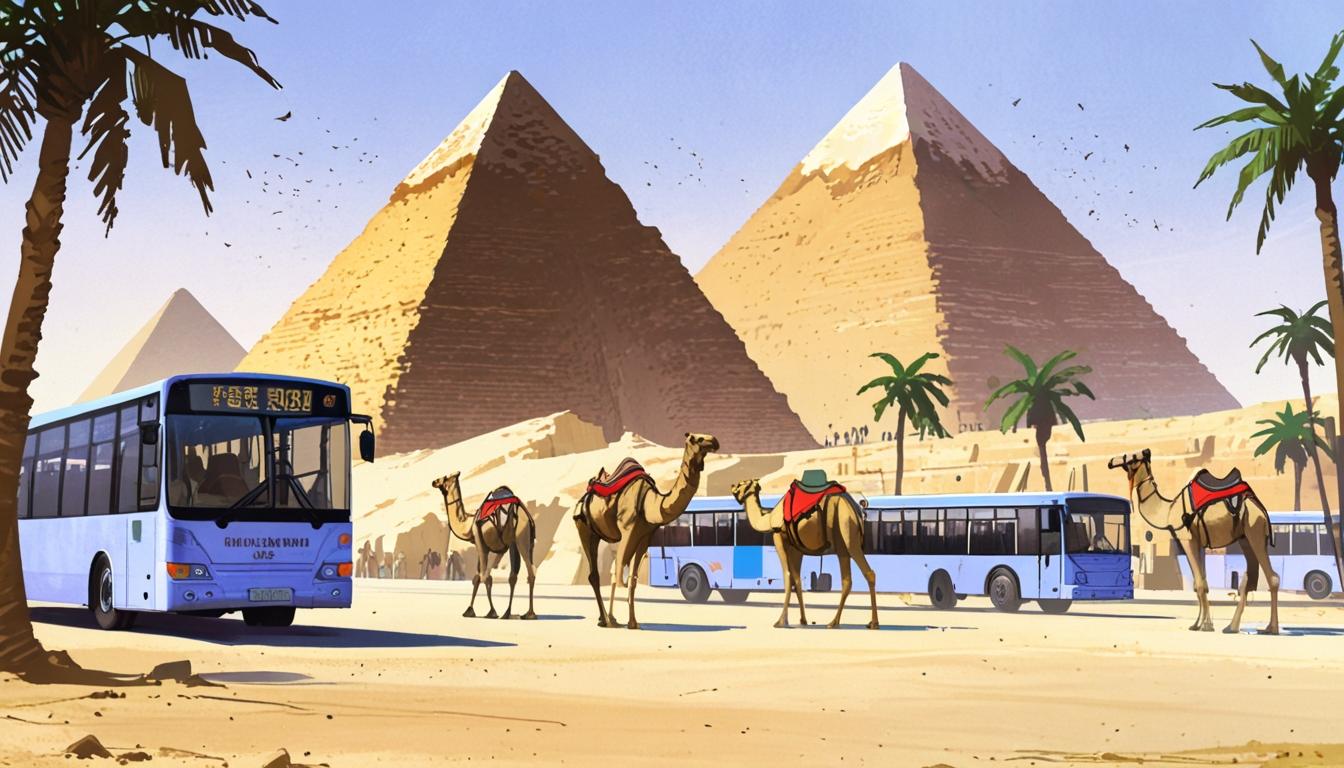Egypt is undertaking a significant £38 million ($51 million) upgrade project at the Pyramids of Giza, aiming to enhance the experience for the more than 14 million tourists who visit the historic UNESCO World Heritage site annually. This initiative, led by Orascom Pyramids Entertainment Services Company, seeks to address long-standing issues including visitor dissatisfaction, mismanagement, and concerns related to the treatment of animals at the landmark.
The Pyramids of Giza have faced growing criticism from visitors citing aggressive vendors, disruption caused by horse and camel caravans, and the general deterioration in the quality of the visitor journey. Naguib Sawiris, founder of Orascom Telecom Holding and Orascom Investment Holding, publicly highlighted the problems in a statement shared on X, drawing attention to the disruptive activities of some 2,000 camel and horse riders at the site. Sawiris described the situation as ‘offensive,’ citing the ‘horse and camel manure and their foul-smelling waste’ as factors that undermine the visitor experience at what he called ‘the most important archaeological site in the world.’
The upgrade project includes a new fleet of 45 electric buses scheduled to shuttle tourists around the area every five minutes, significantly easing transport within the site. Furthermore, plans are underway to introduce a modern online ticketing system, enhance the visitor centre facilities, and restore ancient tombs to bolster the overall appeal and accessibility of the site.
Sawiris conveyed a firm stance on managing the vendors and animal handlers: “The solution is that they must go to the exercise area as planned by the state and stay away from the asphalt bus route to avoid obstructing tourists. In case of refusal, they should be completely prevented in order to preserve this historical area, as the public good is more important than 2,000 people who have been harming their country for years.”
Concerns about the welfare of animals used for tourist rides have been sharply raised by investigations led by animal rights group PETA. Their inquiry revealed instances of severe abuse, including camels and horses being beaten, starved, and ultimately abandoned to die in the streets surrounding the Pyramids. Jason Baker, Vice President of PETA Asia, condemned these practices, stating: “PETA has documented the routine punching, kicking, whipping, and starving of horses and camels at the pyramids. Animals are literally ridden to death and then dumped like rubbish outside the gate. The Pyramids of Giza should symbolise Egypt’s beauty and history—not unchecked animal abuse.”
The ongoing animal welfare issues have recently been highlighted in a highly publicised legal dispute involving Dutch animal rights activist Joke Van der Post. Footage circulating online shows Ms Van der Post confronting and assaulting a man she witnessed beating a donkey in the outskirts of Cairo. In the video, the donkey is seen kicking in agony while being lashed repeatedly. Ms Van der Post, who runs the Good Karma Sanctuary veterinary practice, intervened by punching the man and chasing him away with a whip after he attempted to flee. The man subsequently filed a police complaint against Ms Van der Post, alleging assault and claiming the viral video has caused him psychological distress.
The comprehensive upgrade project reflects Egypt’s efforts to restore the Pyramids of Giza as a world-class tourist attraction, while also addressing environmental, management, and animal welfare concerns that have negatively impacted the site’s international reputation. The changes promise a modernised, more sustainable, and respectful visitor experience at one of the world’s most renowned archaeological landmarks.
Source: Noah Wire Services
